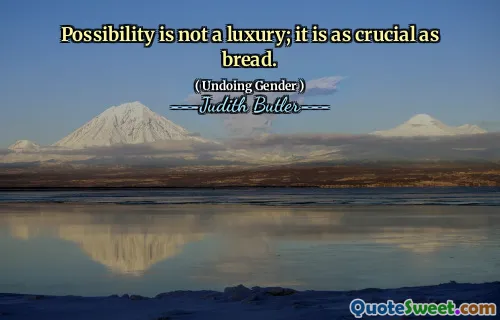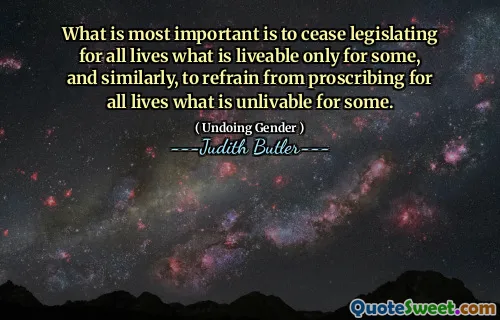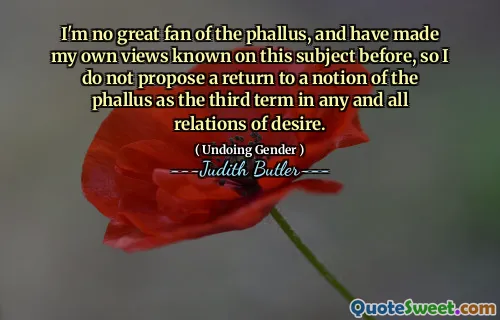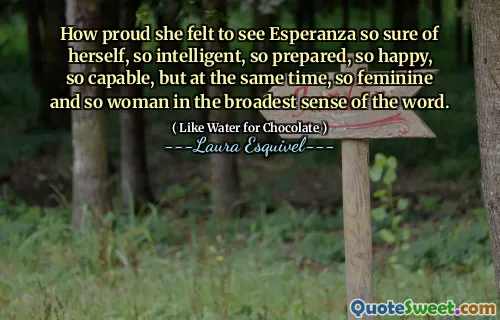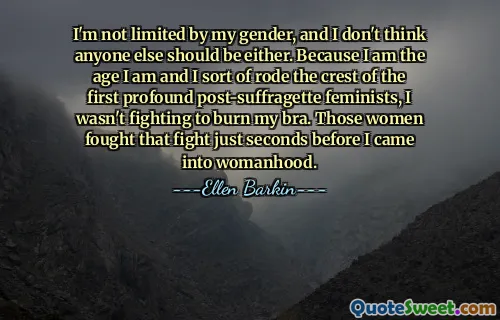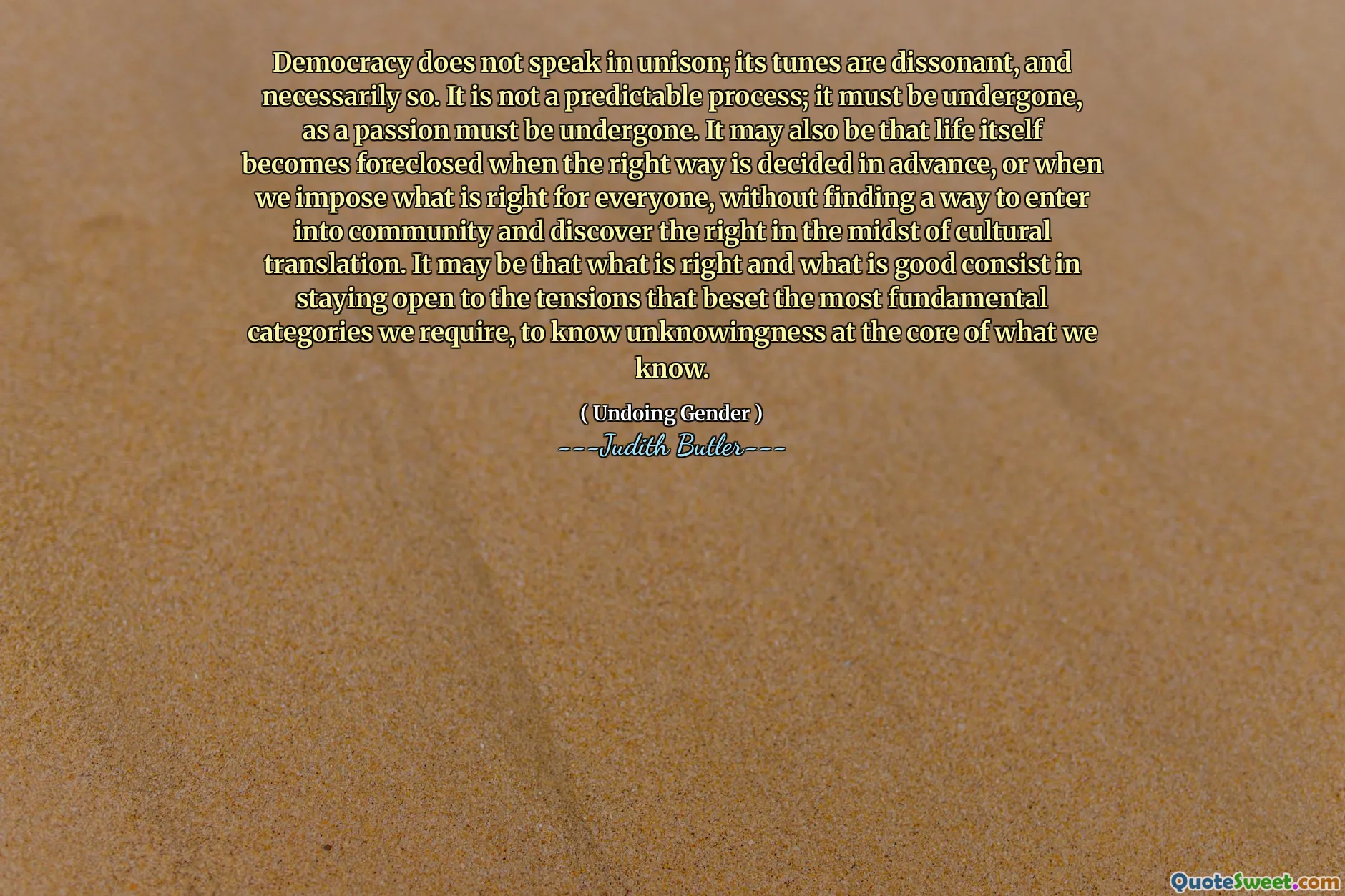
民主不统一说话;它的曲调是不和谐的,一定是这样。这不是一个可预测的过程;必须经历它,因为必须接受一种激情。当正确的方式确定正确的方式时,或者当我们强加适合每个人的事物时,生活本身也可能被取消,而没有找到进入社区并在文化翻译中发现权利的方法。可能是正确的,良好的东西在于保持困扰我们所需的最基本类别的紧张局势,以了解我们所知道的核心。
(Democracy does not speak in unison; its tunes are dissonant, and necessarily so. It is not a predictable process; it must be undergone, as a passion must be undergone. It may also be that life itself becomes foreclosed when the right way is decided in advance, or when we impose what is right for everyone, without finding a way to enter into community and discover the right in the midst of cultural translation. It may be that what is right and what is good consist in staying open to the tensions that beset the most fundamental categories we require, to know unknowingness at the core of what we know.)
朱迪思·巴特勒(Judith Butler)强调了民主的复杂且常常不和谐的本质,强调它并不是以统一的方式运作。取而代之的是,它需要积极的参与,就像无法轻易预测的热情体验一样。当社会急于以一种僵化的方式定义正确的事物时,它可能会消除生活和社区理解的可能性,从而阻止多样化的声音为话语做出贡献。
巴特勒认为,真正的进步在于拥抱我们基本信念内的固有紧张局势。通过对这些紧张局势保持开放,并允许文化解释塑造我们对对与错的理解,我们承认知识本身具有限制。这种方法鼓励更具包容性的对话,该对话重视不同的观点,而不是强加可能不会引起所有人共鸣的奇异观点。
